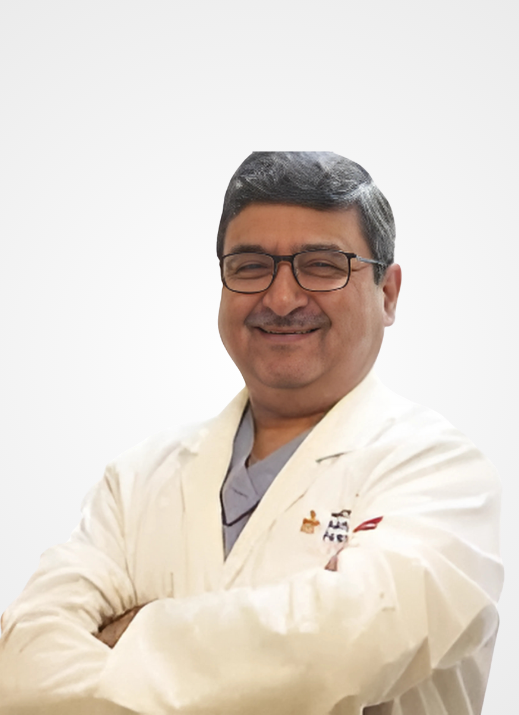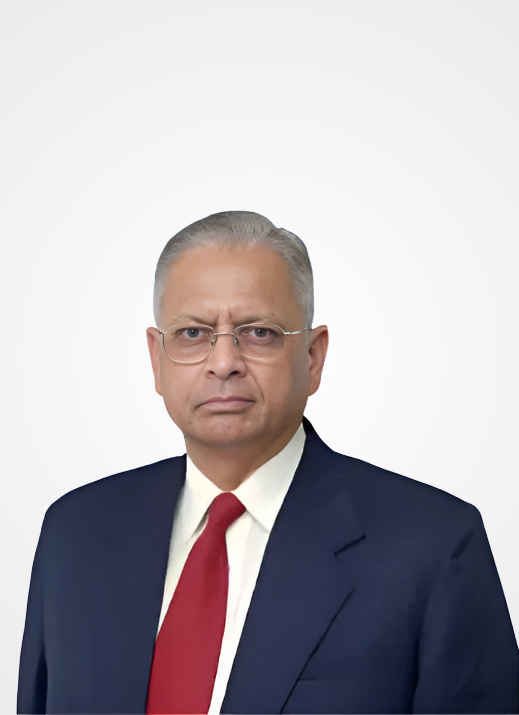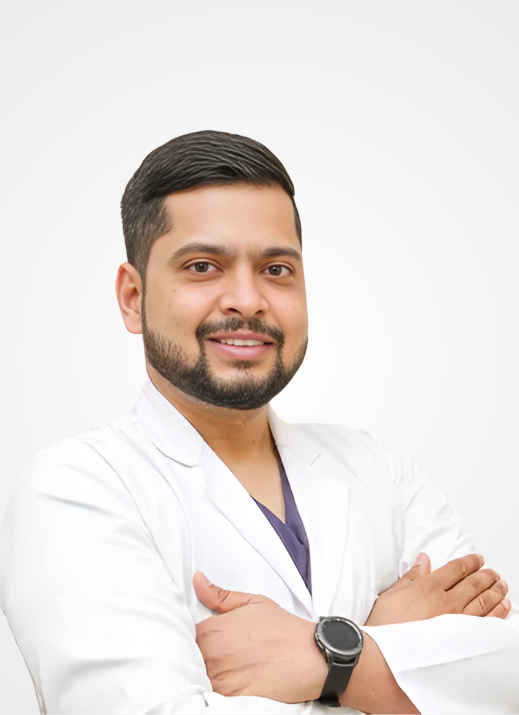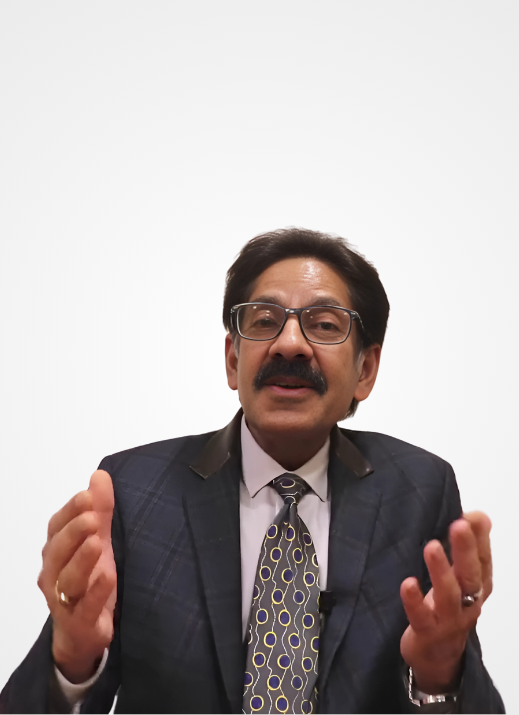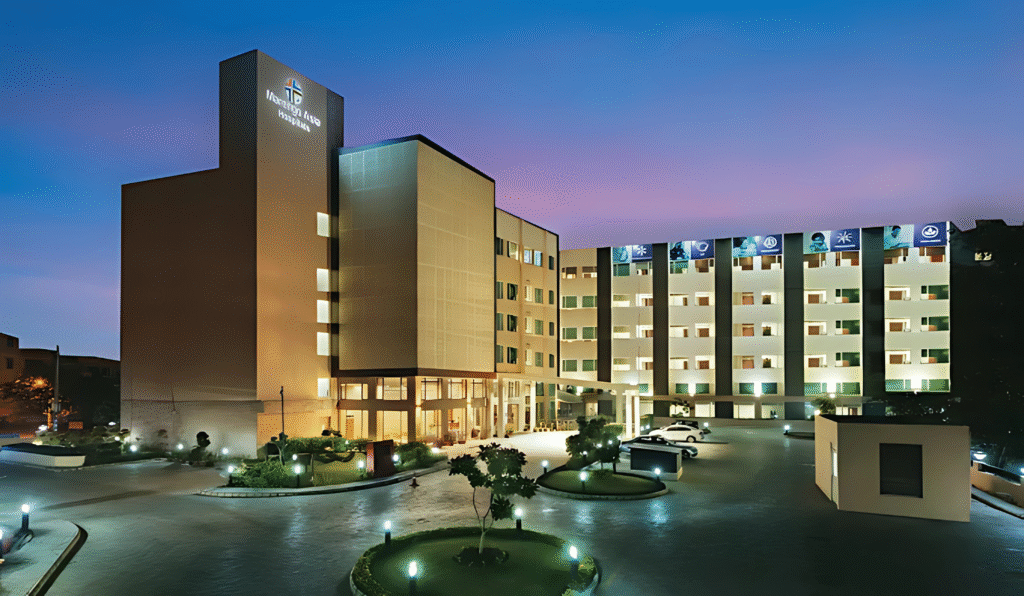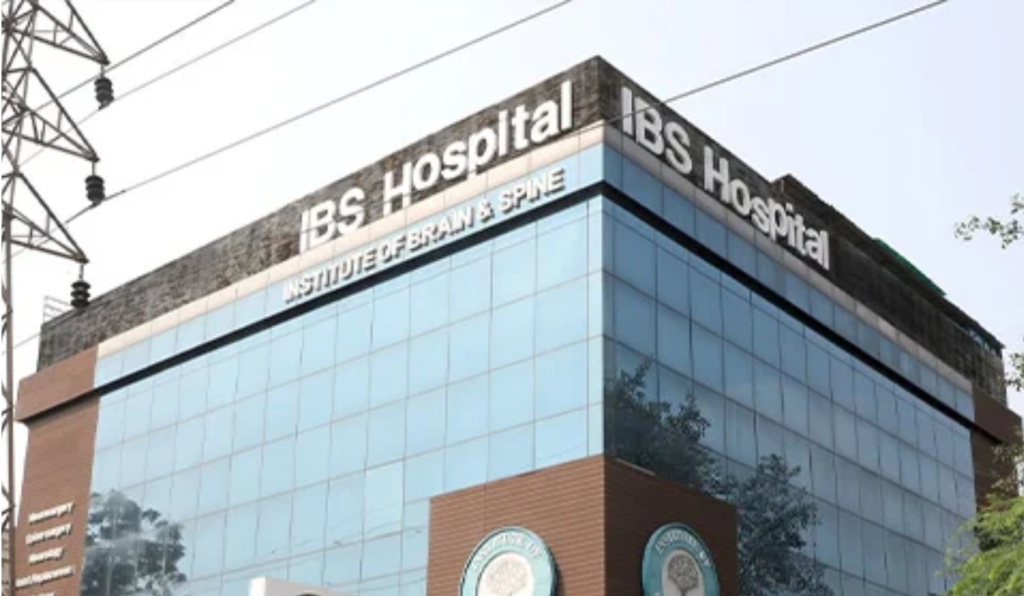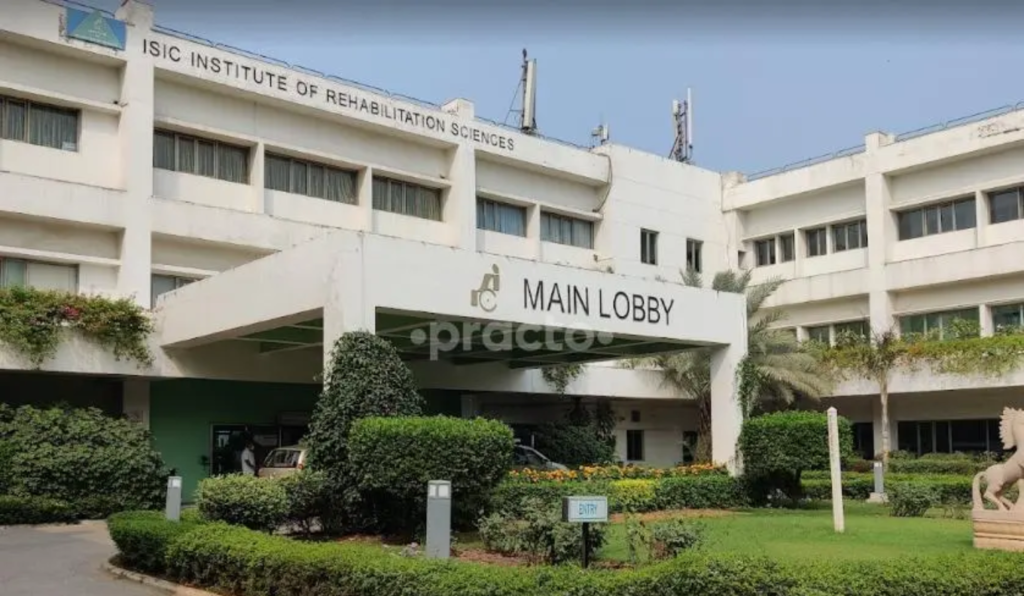Multiple Sclerosis Treatment Cost in India

What is Multiple Sclerosis (MS)?
Multiple Sclerosis (MS) is an autoimmune disease where the immune system attacks the protective covering of nerves (myelin) in the central nervous system. This disrupts communication between the brain and the rest of the body. MS can lead to a wide range of symptoms, including vision problems, muscle weakness, balance issues, and cognitive difficulties. The disease follows different courses, including relapsing-remitting and progressive types.
How Does Multiple Sclerosis (MS) Develop?
Multiple Sclerosis (MS) develops when the immune system mistakenly attacks the myelin sheath—the protective covering of nerves.
This results in inflammation and eventual scarring (sclerosis), disrupting nerve signal transmission between the brain, spinal cord, and body.
The exact trigger is unknown, but environmental factors, genetics, and viral infections like Epstein-Barr are believed to play roles.
MS may begin with mild symptoms like fatigue or blurred vision, but can escalate over time to severe physical and cognitive impairments.
MS progresses in different patterns—some people experience relapses and recovery, while others face steady neurological decline.
Causes and Risk Factors of Multiple Sclerosis (MS)
Multiple Sclerosis (MS) is a chronic autoimmune condition in which the immune system attacks the protective myelin sheath covering the nerves in the central nervous system (CNS). This disruption leads to communication issues between the brain and the rest of the body, resulting in a wide range of physical and cognitive symptoms. The exact cause of MS is still not fully understood, but both genetic and environmental factors are believed to play a role.
Primary Causes of MS
Immune System Malfunction: The immune system mistakenly targets and destroys myelin, leading to inflammation and nerve damage.
Genetic Susceptibility: Although MS is not directly inherited, certain genes increase susceptibility to developing the disease.
Infectious Agents: Past infections—especially with the Epstein-Barr virus (EBV)—have been associated with a higher MS risk.
Environmental Triggers: Factors like low sunlight exposure and vitamin D deficiency may contribute to MS development.
Inflammatory Response: Abnormal immune responses may be triggered by unknown environmental stimuli, leading to CNS inflammation.
Risk Factors Contributing to MS
Age and Gender: MS typically appears between ages 20–40 and is 2 to 3 times more common in women.
Family History: Individuals with a first-degree relative (parent or sibling) with MS are at a higher risk.
Ethnicity: People of Northern European descent are at the greatest risk, while it is less common in Asian and African populations.
Smoking: Tobacco use may increase the likelihood and speed of MS progression.
Climate and Geography: MS prevalence is higher in countries farther from the equator, likely due to lower vitamin D exposure.
Symptoms of Multiple Sclerosis (MS)
MS affects the central nervous system, disrupting communication between the brain and the body.
Numbness or weakness in limbs, usually on one side
Electric-shock sensations with neck movement
Tremors or lack of coordination
Blurred or double vision
Fatigue and dizziness
Types of Multiple Sclerosis (MS)
The most common form, characterized by clearly defined flare-ups (relapses) followed by periods of partial or full recovery (remissions). It may or may not worsen over time.
Often develops after RRMS. Over time, the disease progresses steadily, with or without relapses. It results in more permanent neurological damage and disability.
This form involves a slow, continuous worsening of symptoms from the onset without distinct relapses or remissions. It is less common but often more disabling.
Includes Progressive-Relapsing MS (steady decline with acute relapses) and Benign MS (minimal disability after many years), which are less frequently diagnosed but important to recognize.
Which Type of Multiple Sclerosis is the Most Dangerous?
Primary Progressive MS (PPMS) is often considered the most severe form due to its steady and irreversible progression from the onset, with no periods of remission.
Why Choose India for Treatment of Prostate Cancer
India has become a global hub for advanced neurology and neurosurgery treatments, offering a unique combination of cutting-edge medical technology, experienced specialists, and compassionate care. Patients worldwide travel to India not only for high-quality treatments but also for the affordability and holistic healing approach that complements neurological recovery.
India is home to board-certified neurologists and neurosurgeons trained at top global institutions. They have extensive experience handling complex conditions such as brain aneurysms, epilepsy, multiple sclerosis, Parkinson’s disease, and more. Their deep expertise ensures accurate diagnosis and effective treatment plans tailored to individual needs.
Indian hospitals are equipped with the latest neurological diagnostic and treatment technologies, including:
Functional MRI and PET scans
Intraoperative neuro-navigation
Robotic-assisted neurosurgery
Deep Brain Stimulation (DBS) systems
These advancements significantly enhance precision in both surgical and non-surgical neurological care.
One of the biggest advantages of choosing India is the affordability. Treatment costs in India can be 50–70% lower than in the US, UK, or other Western nations, without compromising on quality. Pricing is often transparent, and patients receive clear breakdowns before the treatment begins.
Neurological recovery often requires long-term rehabilitation. Indian hospitals offer integrated neuro-rehab services including:
Physiotherapy and occupational therapy
Speech and cognitive rehabilitation
Pain and stress management programs
This ensures patients receive holistic care throughout their recovery journey.
Unlike in many countries where wait times for neurological or neurosurgical consultations and procedures can stretch for weeks or months, Indian hospitals offer quick scheduling and immediate access to treatment, especially critical in time-sensitive cases like strokes or brain tumors.
India is a global leader in medical tourism, offering:
✔ Dedicated international patient coordinators
✔ Medical visa assistance for easy travel
✔ Affordable accommodation & travel support
✔ Multilingual staff, including English-speaking doctors
This ensures a smooth and hassle-free experience for foreign patients traveling to India for treatment.
Different Types of Treatments for Multiple Sclerosis (MS)
Multiple Sclerosis (MS) is a chronic autoimmune condition where the immune system attacks the protective covering of nerves, disrupting communication between the brain and the rest of the body. In India, a combination of disease-modifying therapies, symptomatic treatments, and rehabilitation is used to manage MS effectively.
How It Works:
Medications like corticosteroids and disease-modifying drugs (DMDs) such as interferons reduce inflammation, manage symptoms, and slow the progression of the disease.
When It’s Used:
For relapsing-remitting and progressive types of MS, especially during flare-ups or as maintenance therapy.
Benefits:
Slows disease progression
Reduces frequency and severity of relapses
Controls inflammation and immune response
How It Works:
Blood is filtered to remove antibodies and immune components that are attacking the nervous system, then returned to the body.
When It’s Used:
In severe MS relapses not responding to standard steroid therapy.
Benefits:
Rapid relief during acute attacks
Reduces autoimmune damage
Non-surgical and repeatable
How It Works:
Comprehensive rehabilitation, including speech therapy, cognitive training, and mobility exercises, helps patients adapt to MS-related limitations.
When It’s Used:
Continuously during and after flare-ups to restore independence and functional ability.
Benefits:
Enhances daily function
Reduces disability
Improves mental well-being
How It Works:
Customized exercises improve strength, balance, and coordination, reducing muscle stiffness and fatigue associated with MS.
When It’s Used:
Ongoing support throughout the disease to maintain physical independence.
Benefits:
Manages spasticity and weakness
Enhances mobility
Prevents secondary complications
How It Works:
Targeted immunotherapies like monoclonal antibodies (e.g., natalizumab) modulate or suppress abnormal immune activity.
When It’s Used:
Primarily in patients with aggressive or rapidly progressing MS.
Benefits:
Targets disease mechanism directly
Fewer relapses
Long-term disease control
Different Procedures for Multiple Sclerosis (MS)
India offers both traditional and cutting-edge procedural options to manage and potentially alter the course of MS. These are often used in combination with pharmacological and rehabilitative strategies.
How It Works:
Blood plasma is removed, treated to eliminate harmful immune factors, and then re-infused, helping reduce autoimmune activity.
When It’s Used:
During severe attacks or when other treatments fail.
Benefits:
Immediate symptom relief
No long-term immunosuppression
Often effective within a few sessions
How It Works:
Stem cells are harvested (usually from the patient), then used to regenerate damaged nerve tissues and reprogram immune response.
When It’s Used:
In aggressive MS cases, or as part of clinical trials for relapsing or progressive forms.
Benefits:
Potential for long-term remission
Repairs nerve damage
Personalized and regenerative approach
How It Works:
Emerging techniques involve altering or replacing faulty genes responsible for abnormal immune responses in MS.
When It’s Used:
Still experimental, but used under trial conditions or in specialized centers.
Benefits:
Targets root cause of immune dysfunction
May reduce need for lifelong treatment
Promising results in early trials
How It Works:
Robotic systems guide patients through precise, repetitive movement therapy to retrain the brain and body for improved coordination and strength.
When It’s Used:
For patients with mobility impairments or balance disorders due to MS.
Benefits:
Enhances rehabilitation outcomes
Reduces therapist fatigue
Increases patient engagement
How It Works:
Newer approaches, including endoscopic interventions and micro-targeted immunotherapies, aim to manage MS symptoms without large-scale surgeries.
When It’s Used:
For patients requiring localized nerve support or precision-targeted relief.
Benefits:
Reduced complications
Faster recovery
Ideal for elderly or high-risk patients
Focal therapy targets only specific cancerous areas in the prostate while preserving healthy tissue. It includes treatments like:
HIFU (High-Intensity Focused Ultrasound) – Uses sound waves to destroy cancer cells.
Cryotherapy – Freezes cancerous tissues to eliminate tumors.
Laser Therapy – Uses light energy to destroy cancer cells.
Benefits:
✔ Fewer side effects compared to surgery or radiation
✔ Maintains urinary and sexual function
When It’s Used:
✔ Patients with small, localized tumors
✔ When standard treatments are not suitable
This procedure removes lymph nodes near the prostate to check if cancer has spread beyond the gland. It is usually done during radical prostatectomy or as a separate procedure.
Benefits:
✔ Helps determine cancer stage
✔ Reduces the risk of cancer spreading
When It’s Used:
✔ High-risk prostate cancer cases
✔ When lymph node involvement is suspected
Best Doctors for Multiple Sclerosis Treatment in India
Best Hospitals for Multiple Sclerosis Treatment in India
Med Travel India Offerings
How does Med Travel India help you?
Med Travel India is dedicated to assisting international patients in accessing high-quality prostate cancer treatment in India. From selecting the best hospitals to providing logistical support, we ensure a seamless medical journey. Our team works closely with top oncologists and healthcare facilities to offer personalized treatment plans tailored to each patient’s condition.
We take care of every aspect of medical travel, allowing patients to focus solely on their recovery. Below is a list of services provided by our company:
Services offered by Med Travel India

Seamless Planning for Your Medical Journey
Before you even arrive, we take care of all the groundwork. From connecting you with top specialists to ensuring all necessary medical evaluations are completed, we make your journey stress-free. Our goal is to provide clarity and comfort before your treatment begins.
- Free Medical Consultation
- Personalized Treatment Plan
- Estimated Cost & Duration
- Visa Assistanc
- Second Opinion Service
- Pre-Arrival Coordination
Worry-Free Travel & Comfortable Stay
We ensure that your journey to India is as smooth as possible. From booking your flights to arranging a comfortable stay near your hospital, we handle everything so you can focus on your health.
- Flight Booking Assistance
- Accommodation Booking
- Airport Pickup & Drop
- Language Interpretation Services
- Local Transport Arrangements
- Currency Exchange Support


World-Class Medical Care, Personalized for You
We ensure that your medical treatment is well-organized and efficient. Our team works closely with hospitals to facilitate smooth admissions, consultations, and procedures, ensuring you receive top-quality healthcare.
- Priority Appointment Scheduling
- Direct Hospital Admission
- Specialist Doctor Assignment
- Pharmacy & Medical Supplies
- Hospital Admission & Discharge Support
- 24/7 Customer Assistance
Continued Support for a Speedy Recovery
Your health journey doesn’t end after treatment. We provide post-procedure assistance to ensure a smooth recovery, whether you stay in India for rehabilitation or return home.
- Post-Surgical Care Coordination
- Rehabilitation & Physiotherapy
- Virtual Doctor Consultations
- Diet & Lifestyle Guidance
- Extended Stay Arrangements
- Post-treatment Medical Supplies


Beyond Healthcare, A Comfortable Experience
We offer additional services to make your stay in India comfortable and enriching, ensuring that your well-being is cared for beyond the hospital.
- Medical Insurance Settlement Help
- SIm Card Assistance
- Customized Sightseeing Tours
- Medical Document Assistance
- Personalized Assistance for Family Members
- Concierge Services
Reviews From Our Patient




